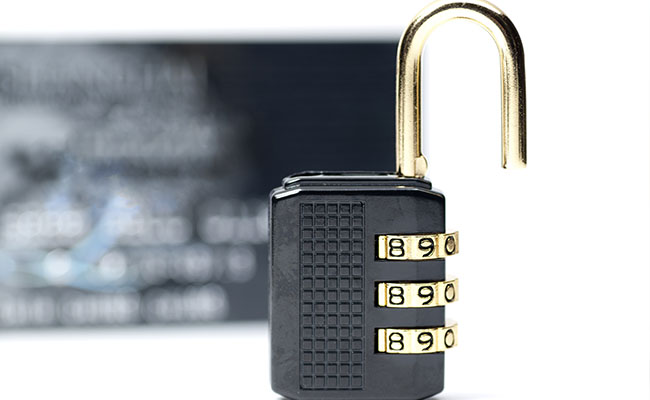Secured vs. Unsecured Loan: Which Is The Best Option?
When looking for a loan, you will have several options. To weigh your option, you should look into secured vs. unsecured loans.
Both loans serve the purpose of getting the extra money you need. They have some significant differences that you will need to consider. Here are some of the essential factors of each loan type to help you decide the best option for your needs.
Are you ready for a Quick Quiz?
What is a Secured Loan?
Secure loans require something to be used as collateral for securing the loan repayment. The lending will take possession of your collateral if you fail to make payments. There are many options for securing these loans, depending on the financial institutions you work with. Some agencies require collateral like automobiles, houses, boats, and other property of value.
Other institutions will accept security in the form of a savings account and some cases, any items of value like jewelry or stocks. General rules for secured loans allow for borrowing up to the value of your collateral.
This amount will depend on your credit score, the institution you are borrowing from, and the specific property used. With secured loans, the collateral that you use will be a guarantee of repayment.
Should you default and not repay the loan, the financial institution can take possession of the collateral property used to secure the loan. In some cases, you may be required to pay an amount above your collateral.
This would be the case if the financial institution sold your property for repayment, and the price received needed to be increased to pay off your loan.
What is an Unsecured Loan?

Unsecured loans are personal loans that are obtained without collateral. Because there is no collateral, your credit score will play an essential role in approval odds, the amount you can borrow, the terms of the loan, and interest rates.
With an unsecured loan, the lending company will not be able to take your property if you default on payments. However, depending on the regulations in your state, they have other recourses to protect them against this loss.
If you default on your unsecured loan, the lending company will report this as a negative report to the credit bureau, which will lower your overall credit score and make approval for other types of loans in the future more difficult.
Other recourses lending companies have will vary from state to state but can include court proceedings, garnishments, judgments, and more.
Secured vs. Unsecured Loan

Now that you know the basics of each loan type, you need to understand the difference between secured vs. unsecured loan.
While the most obvious is, of course, the required collateral for secured loans, several other factors must be considered.
Other than the collateral, one of the most significant differences between secured loans and their unsecured counterparts is the interest charged on each. Interest charged for loans and any credit varies from lender to lender and person to person.
Your credit score and payment history will play a significant role in deciding your interest rates. That being said, in many cases, unsecured loans often have a higher interest rate than secured ones.
This increase is because of the risk the lending company is taking in both instances — secured loans have a higher probability for repayment, allowing them to charge lower interest rates.
Another difference between secured and unsecured loans is the level of credit needed to obtain the loan. Unsecured loans will generally require a higher credit score for approval than a secured loan.
Lenders look at credit scores to determine the likelihood that the loan will be repaid on time, and therefore, the higher the score, the more likely they are to make the loan. While secured loans require a certain level of credit score, it is often easier to get secured loans with lower scores due to the guarantee of the collateral.
One final difference between secured and unsecured loans is the loan amount. Secured loans will be given based on the borrower’s credit score and the value of their collateral. In contrast, unsecured loans are based on the borrower’s creditworthiness and income. In general, unsecured loans will be lower than secured loans, again due to the risk perceived by the lender.
Check if you qualify in two simple steps
- Step 1 – Select your debt amount below to see if you’re eligible
- Step 2 –Answer a few quick questions & join hundreds of thousands of Americans on the path to becoming debt-free
What Difference Does the Interest Make?

Now you may wonder what difference your interest rate makes and why it is important. The interest rate between secured vs. unsecured loans will ultimately determine how much you pay back for the borrowed money. The higher the interest rate, the more you will be paying.
Let’s use our two loan types to compare. Starting with the secured loan, say you received a collateral loan for $1800 and have an interest rate of 12% and monthly payments of $150.00.
You will pay approximately $127 at this interest rate and pay off the loan in roughly 13 payments. The changes are. Significant if you use the same reference amount and consider a 26% interest rate.
A loan for $1800 with an interest rate of 26% and $150.00 monthly payments leaves you paying about $307 in interest and making approximately 15 payments.
While the difference may not seem that extreme, these numbers will change depending on the interest rate, the term of the loan (number of months given for repayment), the amount of the initial loan, monthly payment amounts, and many factors after you start the repayment process.
Late payments also play a crucial role in the final price you pay for the initial loan. Consider looking at a budget or interest calculator to see how much you can afford or what you will be paying long-term.
Which One Is Right For You?
Deciding between a secured vs. unsecured loan is right for you will take some consideration and homework.
Having a general understanding of your credit score and payment history will go a long way toward helping you make this decision. Other considerations will be your gross income, length of time on your current job, total debts owed at the time of your loan application, the reason for requesting a loan, and the loan amount you are applying for.
Each of these factors will play into your qualifications for either loan type. If your credit score is low, getting an unsecured loan may pose some difficulties; however, depending on your other factors, it may still be possible. Secure loans are generally easier to obtain with lower credit scores because of the reimbursement guaranteed by your collateral.
Credit Score and Gross Pay
Credit score ranges, and gross pay will help determine the rate you are qualified for. For either loan, lenders usually want to see that you have a consistent work history and are not likely to be unemployed before the loan repayment is completed.
This factor and other debt amounts are among the top questions on any loan application. Income factors in because it shows your ability to pay; total debt concerns how much of your income can be applied to this new loan payment.
Bankruptcy
If you have declared bankruptcy or filed for bankruptcy, you may need help securing a loan. Ultimately, deciding which loan type will be better for you will be a personal decision as much as a financial one.
You’ll need to review your current bills and personal circumstances to see which loan is better. A secured loan may be your best option if you have a below-average credit score and have collateral to use.
Please keep in mind, though, that if you decide on the loan, your collateral will be lost. If you have a reasonably good credit score, an unsecured loan with an average interest rate may be your best option. Many borrowers have options for free credit cards with free interest. Or you may qualify for student loan forgiveness. Those may be an option for you.
SUMMARY
In summary, when considering a loan, it’s important to understand the differences between secured and unsecured loans. Secured loans require collateral, such as property or savings, which serves as a guarantee for repayment. If the borrower defaults on payments, the lender can take possession of the collateral. On the other hand, unsecured loans are obtained without collateral, relying heavily on the borrower’s credit score for approval and determining interest rates.
Ultimately, the decision between secured and unsecured loans should be based on careful evaluation and consideration of individual needs and financial situations. Conducting thorough research and consulting with financial professionals can provide further guidance in making an informed decision regarding loan options.
Frequently Asked Questions
How does the interest rate differ between secured and unsecured loans?
Secured loans generally have lower interest rates due to the reduced risk for the lender. On the other hand, unsecured loans often come with higher interest rates to compensate for the increased risk since there is no collateral involved.
What factors should I consider when choosing between a secured and an unsecured loan?
Several factors should be considered, such as credit score, income, employment history, existing debts, loan purpose, and desired loan amount. If you have a lower credit score and collateral available, a secured loan might be a suitable option. On the other hand, if you have a good credit score and prefer not to provide collateral, an unsecured loan may be more appropriate.
Remember to provide detailed and accurate information in your answers, ensuring they are concise and relevant. Using bullet points or subheadings can also help structure the content for better readability.
Can I convert an unsecured loan into a secured loan?
In certain situations, it may be possible to convert an unsecured loan into a secured loan by providing collateral. This can be advantageous if you are looking to lower your interest rate or secure better loan terms. However, it’s important to consult with your lender to understand the process and any potential implications.
Published on August 27, 2019; Updated on June 27, 2023.
Sponsored Advertising Content:
Advertorial or Sponsorship User published Content does not represent the views of the Company or any individual associated with the Company, and we do not control this Content. In no event shall you represent or suggest, directly or indirectly, the Company's endorsement of user published Content.
The company does not vouch for the accuracy or credibility of any user published Content on our Website and does not take any responsibility or assume any liability for any actions you may take as a result of reading user published Content on our Website.
Through your use of the Website and Services, you may be exposed to Content that you may find offensive, objectionable, harmful, inaccurate, or deceptive.
By using our Website, you assume all associated risks.This Website contains hyperlinks to other websites controlled by third parties. These links are provided solely as a convenience to you and do not imply endorsement by the Company of, or any affiliation with, or endorsement by, the owner of the linked website.
Company is not responsible for the contents or use of any linked website, or any consequence of making the link.
This content is provided by New Start Advantage LLC through a licensed media partnership with Inquirer.net. Inquirer.net does not endorse or verify partner content. All information is for educational purposes only and does not constitute financial advice. Offers and terms may change without notice.





